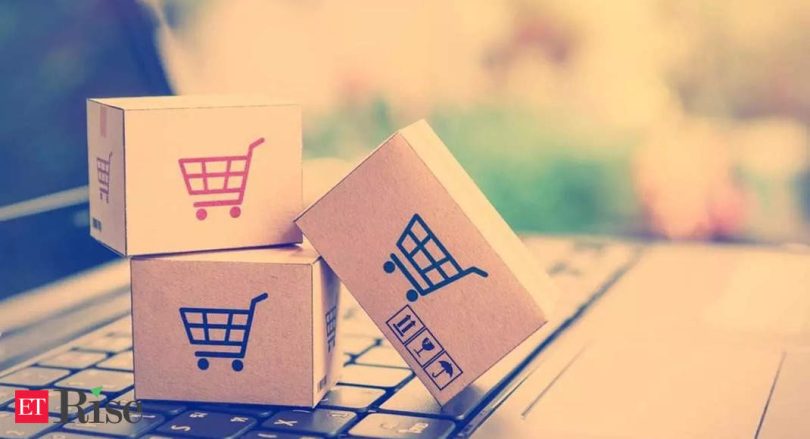[ad_1]
In 2018, India had over 50,000 startups, with around 8,900–9,300 of these being technology-based. In 2019, alone, 1300 new tech startups were established, indicating that 2-3 new tech startups are founded every day. This adoption has enabled the growth of various sectors making it accessible for both the service providers and the consumers. Post-pandemic, one such sector is e-commerce which has witnessed massive growth both in terms of number of consumers and profit figures and all this has been possible only because of the tech adoption and digital transformation during the pandemic, especially during lockdown.
We have witnessed various big businesses attaining new heights and various small e-commerce businesses being started and establishing themselves among the consumers and in the market. The industry as a whole are being transformed by emerging technologies and tech startups. They’re influencing how modern consumers interact with brands. These advancements provide online store entrepreneurs with new business prospects and accelerate the industry’s growth.
Market predictions
The e-commerce market in India is predicted to rise to $188 billion by 2025, up from $46.2 billion in 2020, according to a report by IBEF. It is estimated to reach US $350 billion by 2030. The surge in internet and smartphone usage has fuelled most of the industry’s expansion. Because of the ‘Digital India’ campaign, the number of internet connections expanded dramatically to 830 million in 2021. Digital payments, hyper-local logistics, analytics-driven consumer experience, and digital marketing, all enabled by advanced technology, will certainly assist the sector’s further expansion.
Indian tech startups have grown to have skilled and experienced personnel to develop, build, and deliver technologies. These include mobile commerce, electronic funds transfer, supply chain management, Internet marketing, online transaction processing, electronic data interchange (EDI), inventory management systems, automated data collection systems, and many more services. They build and hone their workforce and their skills according to market trends and demands.
A number of new platforms have emerged to aid in the expansion of how tech startups are assisting small e-commerce businesses in India. Many software-as-a-service (SaaS)-based tech startups offer automation, organisation, and management of many types of operations essential to small e-commerce businesses, such as inventory platforms for managing inventory and financial services platforms for managing accounts and ledgers. According to a
report, the Indian SaaS ecosystem is predicted to grow significantly and boost its share of global SaaS to 4-5 percent (from roughly 1% currently), leading to a $50-70 billion revenue opportunity by 2030.
Growth of e-commerce businesses in India
Today India is a hub of almost 2,027 logistics tech startups. Small e-commerce businesses can now offer pan-India shipping with a transactional costing model, as well as supply chain services, tracking systems, subscription-based policies, and other features that make the businesses sustainable from a cost and performance standpoint. These tech startups support smooth functions and operations by providing end-to-end delivery services and solutions for small e-commerce companies.
Post demonetisation and growing digital adoption in the finance and banking sector, India today has near about 6,636 FinTech startups, making it one of the world’s fastest growing Fintech markets. Payments, Lending, Wealth Technology (WealthTech), Personal Finance Management, Insurance Technology (InsurTech), Regulation Technology (RegTech), and other subsegments make up the Indian Fintech business ecosystem.Micro loans, pay later tech startups, and zero transaction fee payment gateways with practically same-day payment settlement SLAs have given small e-commerce businesses in India access to a low-to-medium ticket size user group. The Indian FinTech business was worth $31 billion in 2021 and is estimated to be $150 billion by 2025.
New innovations occurring every day are impacting the whole overall industry. Many emerging companies approach with market research about the latest tech adoptions and new services that will assist in the growth of small e-commerce businesses, such as Assistive Technology, Chatbots, Automated Campaign Management, Personalised User Experience, Artificial Intelligence and many more.
The introduction of these modern technologies and the emergence of new companies that build and offer them has strengthened e-commerce businesses’ roots in the digital age. Regardless of how far we progress, technology will always play an important role in e-commerce.
(The writer is Founder and Managing Director, ValueScale Technologies)
[ad_2]
Source link








